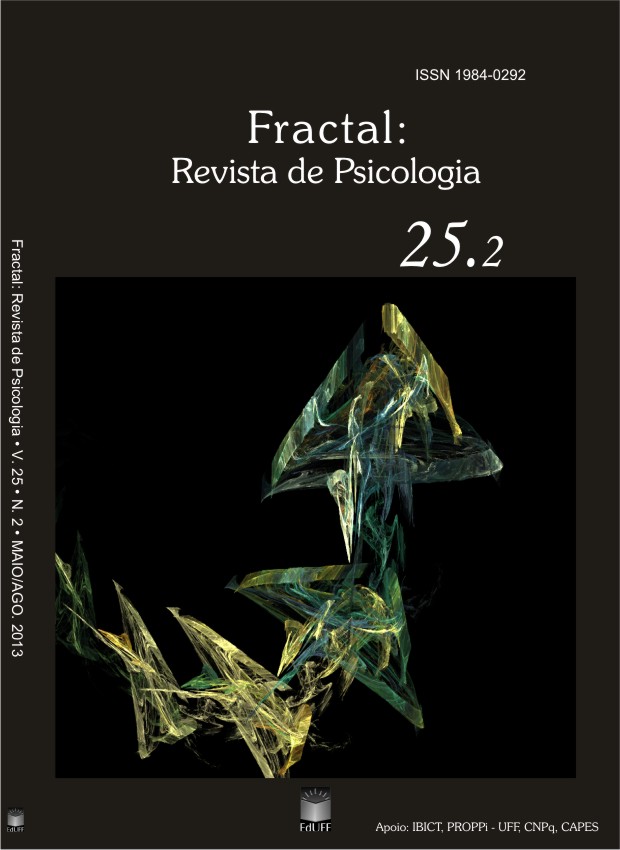The cartographer’s formation is the world: embodiment and affectability
Keywords:
cartography method, research methodology, formation, body, affectAbstract
This paper examines the cartographer’s formation as a collaborator in the construction of clues in the method of cartography. By considering the process involved in the production of knowledge, the authors defend that this formation is achieved by the attentive opening of the body to the collective level of forces present in the world. The researcher’s learning and transformation take place through the follow-up of the effects of research actions, developing abilities and ethical standards. Varela and Latour support our affirmation that the cartographer’s formation occurs as a corporal inscription, alongside processes of embodiment of knowledge and practices which constitute affectability structures. In this sense, it suggests the need to activate the potential to be affected beyond the trivial sensitive function, activating a virtual dimension that is only expanded to the extent that it is exercised. We conclude that, by reflecting on the cartographer’s formation, we are reflecting on his construction of the world.Downloads
References
ALVAREZ, J.; PASSOS, E. Cartografar é habitar um território existencial em pistas do método da cartografia: pesquisa-intervenção e produção de subjetividade. In: PASSOS, E.; KASTRUP, V.; ESCÓSSIA, L. (Org.). Pistas do método da cartografia: pesquisa-intervenção e produção de subjetividade. Porto Alegre: Sulina, 2009. p. 131-149.
BERGSON, H. L’évolution crêatrice. Paris: Presses Universitaires de France, 1962.
DEPRAZ, N.; VARELA, F. VERMERSCH, P. On becoming aware: a pragmatic of experiencing. Philadelphia: Benjamin, 2003.
KASTRUP, V. O método da cartografia e os quatro níveis da pesquisa-intervenção. In: CASTRO, L. R. de; BESSET, V. L. (Org.). Pesquisa e intervenção na infância e adolescência. Rio de Janeiro: Trerepa/FAPERJ, 2008.
LATOUR, B. Como falar do corpo? A dimensão normativa dos estudos sobre a ciência. In: NUNES, J. A.; ROQUE, R. (Org.). Objetos impuros: experiências em estudos sociais da ciência. Porto: Afrontamento, 2007. p. 40-61.
OITICICA, H. Aspiro ao grande labirinto. Rio de Janeiro: Rocco, 1986.
OITICICA, H. Hélio Oiticica: a pintura depois do quadro. Rio de Janeiro: Silvia Roesler Edições de Arte, 2008.
PASSOS, E., BENEVIDES DE BARROS, R. A Cartografia como método de pesquisa-intervenção. In: PASSOS, E.; KASTRUP, V.; ESCÓSSIA, L. (Org.). Pistas do método da cartografia: pesquisa-intervenção e produção de subjetividade. Porto Alegre: Sulina, 2009. p. 17-31.
PASSOS, E.; KASTRUP, V.; ESCÓSSIA, L. (Org.). Pistas do método da cartografia: pesquisa-intervenção e produção de subjetividade. Porto Alegre, Sulina, 2009.
POZZANA, L. O corpo em conexão: Sistema Rio Aberto. Niterói: Eduff, 2008.
POZZANA, L. Oficina de movimento e expressão com deficientes visuais: uma aprendizagem coletiva. In: MORAES, M.; KASTRUP. V. (Org.). Exercícios de ver e não ver: arte e pesquisa com pessoas com deficiência visual. Rio de Janeiro: Nau, 2010. p. 76-95.
ROLNIK, S. Cartografia sentimental: transformações contemporâneas do desejo. Porto Alegre: Sulina / UFRGS, 2007.
SADE, C.; KASTRUP, V. Atenção a si: da auto-observação à autoprodução. Estudos de Psicologia, v. 16, n. 2, p. 139-146, maio-ago. 2011.
SALOMÃO, W. Hélio Oiticica: qual é o parangolé? e outros escritos. Rio de Janeiro: Rocco, 2003.
SILVA, F. H. Atividade docente: implicações ético-formativas. 2011. Tese (Doutorado)__Programa de Pós-Graduação em Educação / Universidade Federal do Espírito Santo, Vitória, 2011.
VARELA, A. Um percurso nos Bólides de Hélio Oiticica. 2009. Dissertação (Mestrado)__Universidade de São Paulo, São Paulo, 2009.
VARELA, F. O Reencantamento do Concreto. Cadernos de Subjetividade, São Paulo, v. 1, n. 1, p. 71-86, set. 2003.
VARELA, F. Ética y accion. Santiago do Chile: Dólmen / Granica, 1996.
VARELA, F.; THOMPSON, E.; ROSCH, E. A mente incorporada: ciências cognitivas e experiência humana. Porto Alegre: Artmed, 2003.
Downloads
Published
How to Cite
Issue
Section
License
Authors publishing in this journal agree to the following terms:
- Authors retain copyright and grant the journal the right of first publication, with the work simultaneously licensed under the Creative Commons Attribution License allowing sharing of the work with acknowledgement of authorship of the work and initial publication in this journal.
- Authors are permitted to enter into additional contracts separately for non-exclusive distribution of the version of the work published in this journal (e.g., publishing in an institutional repository or as a book chapter), with acknowledgment of authorship and initial publication in this journal.

This work is licensed under a Creative Commons Attribution 4.0 International License.
To the extent possible under the law, Fractal: Journal of Psychology has waived all copyright and related rights to the Reference Lists in research articles. This work is published in: Brazil.
To the extent possible under law,Fractal: Journal of Psychology has waived all copyright and related or neighboring rights to Reference lists in research articles. This work is published from: Brazil.







